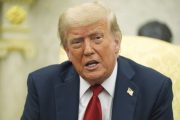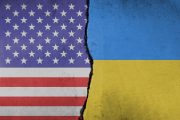Without obtaining permission from Congress and despite repeatedly vowing not to put U.S. boots on the ground in Mali, the Obama administration has already deployed a small contingent of American troops to help international forces prop up the ruling regime in the capital city of Bamako, which seized power in a coup.
According to a report in the Washington Post, the president sent the U.S. soldiers to provide supposed “liaison support” to French and African troops battling separatist rebels in the north as part of a deeply controversial United Nations-backed operation. There are strong indications that American Special Forces are on the ground as well.
In addition to other forms of support such as transporting troops, intelligence sharing, re-fueling assistance, and more, Obama has reportedly deployed some two dozen U.S. soldiers to Mali. Of those, about 10 are providing what the Post called “liaison support,” while the others were apparently assigned to protect the American embassy in Bamako as the Malian conflict continues to rage on.
Lt. Col. Robert Firman, a spokesman for the Pentagon, claimed the U.S. troops were not engaged in combat operations. However, those claims are in doubt as well. The Post and other publications reported on evidence that U.S. Special Operations forces have been deployed on secret missions for some time.
One of the indicators: a “mysterious” car crash in Bamako that killed three American soldiers last year. The subject of secret operations has also come up in congressional hearings, with a congressman asking U.S. Special Operations Command chief Adm. William McRaven whether his forces were coordinating with French troops to avoid “shooting each other.”
Adm. McRaven responded: “There is very close coordination on the ground.”
The news that U.S. troops are on the ground comes in stark contrast to various statements issued by top administration officials in recent months. As The New American reported in January shortly after the Socialist French government invaded Mali with UN support, for example, then-Defense Secretary Leon Panetta said there was “no consideration of putting any American boots on the ground at this time.”
A month later, then-Assistant Secretary of State for African Affairs Johnnie Carson — the top diplomat for Africa — offered similar remarks in front of a House Committee. “We are assisting the French and we are assisting the Africans, but we have no intentions of putting boots on the ground or engaging our forces militarily there,” he claimed.
Aside from the lack of congressional or constitutional authority to meddle in Mali, the administration is also prohibited by federal law from supporting the current regime in Bamako, which came to power last year amid a military coup led by a U.S.-trained officer. Like on a wide range of other issues, however, Congress, the Constitution, and federal law have been unable to restrain the president so far — especially when it comes to waging illegal wars and propping up foreign governments or “rebels.”
Incredibly, the administration claims it can “legally” support French and African forces that are supporting the coup regime, even though it is prohibited under federal law from directly supporting the illegitimate rulers in Bamako. It remains unclear how the U.S. government reached such a conclusion on bypassing the ban, but the fact that the coup government in Bamako is benefiting from American support is indisputable.
Earlier this year, for example, Obama purported to “authorize” $50 million in military assistance to the regime in Chad and the Socialist French government to help fund the intervention in Mali on behalf of the coup regime. Despite support from the U.S. government, however, Chadian “President” Idriss Deby announced that his troops were pulling out in the face of strong opposition. “Chad’s army has no ability to face the kind of guerrilla fighting that is emerging in northern Mali,” he said last month. Thousands of French troops remain on the ground with U.S. support.
Meanwhile, American tanker planes have delivered almost eight million pounds of jet fuel for French fighters as part of supporting the thousands of troops from France on the ground in Mali, Pentagon spokesman Lt. Col. Firman told Military.com. Indeed, U.S. officials have also long bragged about the various forms of aid being provided to the forces battling separatist rebels in the vast Malian north: intelligence, logistics, drone support, and more.
While the war has gone on without an extraordinary amount of international attention or media coverage, human rights groups said earlier this year that the UN-backed military campaign has led to widespread abuses. Like in similar recent interventions in other African countries — especially Libya and the Ivory Coast, where Western powers helped overthrow existing governments in a brutal civil war — numerous organizations stated that internationally supported forces loyal to the dubious regime in Bamako are using summary executions and mass human rights abuses. Even innocent civilians are being targeted.
Ironically, the official justifications for meddling in Mali include supporting “democracy,” which appears odd to analysts as the military campaign centers on backing a coup regime and its goals. Another excuse for the invasion was defending “human rights,” though it remains unclear how waging a brutal war and supporting a coup regime accused of mass abuses would be conducive to protecting anyone’s rights.
The final and perhaps most important justification for intervening in the conflict was supposedly stopping Islamic extremists while upholding Mali’s so-called “territorial integrity” by smashing separatist movements in the north. However, with the U.S. and French governments both playing a key role in arming, funding, and supporting radical Islamists in countries like Syria and Libya, analysts have expressed a great deal of confusion surrounding the true reasons for Western intervention in the war.
The coup regime ruling southern Mali out of Bamako is currently attempting to recapture the northern regions of the country. As The New American has reported, the vast swath of territory was declared independent last year by a group of historically oppressed nomadic Tuareg rebels armed with weapons obtained from the recent Western-backed war on Libya.
Eventually, Islamic fighters with various loyalties joined the fight against the corrupt central government, too — providing a half-baked excuse for the UN, the French government, Obama, and various African despots to enter the fray. Those Islamists became key to selling the intervention to war-weary publics in Europe and the United States.
Separately, the UN Security Council voted recently to “authorize” the deployment of more than 12,500 so-called international “peacekeeping” troops. According to news reports, the first soldiers under direct UN command are set to arrive this summer.
The Malian coup regime’s “Foreign Minister,” Tieman Hubert Coulibaly, told the Security Council that international forces would focus on stability in urban centers. Also on the agenda, Coulibaly said, would be “the protection of civilians, the promotion and protection of human rights, as well as humanitarian assistance.”
Of course, the UN and its mostly dictatorial member governments have been plotting an invasion of Mali to crush the rebels since at least last fall. Numerous “resolutions” purporting to “authorize” international military intervention have been issued, helping to provide some dubious political cover for Western powers and assorted African despots seeking to quash the independence movement.
In the United States, however, the Constitution still requires a declaration of war from Congress before the president can get the American military involved in conflicts. Of course, the chaos in Mali is widely attributed, at least in part, to previous rounds of unapproved interventions in Africa including military actions under Obama that were waged without constitutional or congressional authority.
With the federal government borrowing trillions of dollars just to stay afloat, it remains unclear how many more conflicts Obama can involve America in before it all comes apart. In recent years, the administration has openly deployed U.S. troops everywhere from Guatemala and Jordan to Uganda and Turkey. The results thus far: More debt, more bloodshed, more innocents dead, more conflict, and more chaos. There is little reason to believe that the results in Mali will be any different.
Alex Newman, a foreign correspondent for The New American, is currently based in Europe. He can be reached at [email protected].
Related articles:
In Mali, Forces Backed by UN, France, and Obama Slaughter Civilians
After Invading Mali, Socialist French President Wins UN Peace Prize
Without Congress, Obama Administration Joins War in Mali
France Bombs Mali While Backing Jihad Elsewhere
Despite Arrest of Prime Minister, UN Plot to Invade Mali Advances
U.S. Troops to be in up to 35 African Countries
UN Plotting Invasion of Northern Mali
Mali: Target of UN’s Sovereignty-stealing “Responsibility to Protect” Doctrine
UN-Backed Troops Wreak Havoc in Africa
Installed by UN and Obama, Ivory Coast Regime Attacks Press and Opposition
UN Report: NATO’s Libya War Armed al-Qaeda
U.S.-funded Jihadist “Holy War” in Syria Seeks Sharia Dictatorship
UN-backed Forces Slaughter Christians in Ivory Coast
Obama-backed Syrian Rebels “Ethnic Cleansing” Christians
Christian Massacres: A Result of U.S. Foreign Policy
Obama Defends Military Intervention at UN, Calls for More
Critics Slam Obama Deployment of U.S. Troops to Guatemala for Drug War
Without Asking Congress, Obama Puts U.S. Troops on Syria Border
Obama Paves Way to Arm Muslim Brotherhood-linked Regime in Somalia
Congressmen Condemn Obama Attack on Congressional War Powers
UN, Obama Fighting Alongside Al-Qaeda in Libya




